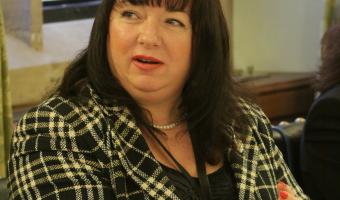
Public sector caterers serve in excess of 2.6bn meals every year in approximately 93,000 sites across the UK. Around 40% of those meals are served by outsourced organisations, the rest by inhouse services.
Where the service is outsourced, it is generally under the contractual terms of public sector organisations such local authorities or NHS trusts, etc.
In other words, together we represent a significant chunk of the catering and hospitality industry and with that comes considerable buying power, industry knowledge and market insight.
You would imagine that a body such as the Food and Drink Sector Council (FDSC) would find a sector like us a valuable partner, given that its stated aim is to bring together ‘senior leaders representing the whole of the agri-food chain together with the government to address those strategic issues and seize opportunities facing the agri-food chain’.
Sad to say, however, the Public Sector Catering Alliance, which I am proud to represent as your chair, has twice now been rejected after applying to become a member.
In other words, a group that represents catering teams and buyers working in schools, universities, hospitals, care homes, meals on wheels services, prisons and Ministry of Defence sites throughout the UK is not deemed to be worth listened to.
On its website, the FDSC says ‘some of the big challenges and opportunities facing the agri-food chain will only be addressed and seized through industry and the government working together’.
How can this claim be made when such a substantial area of the foodservice sector has no representation at the table?
Some might say that there are already members of the FDSC panel who can represent public sector catering, but they are working for organisations that have objectives not fully aligned with the requirements and challenges faced by the majority working in the sector, and we would argue that they also lack the depth or breadth of knowledge required.
We know that one of the major concerns facing individual catering organisations is the lack of representation at the necessary levels to help guide and influence strategy and policy.
That was why last year the PSC Alliance submitted a request for me, as the chair, to be part of the council. The application was supported by all the leading public sector catering industry associations, but was rejected and we have never been given a proper explanation as to why.
Undaunted, we tried again this year. This time, as I am stepping down as chair at the end of the year, we put forward our vice-chair Jayne Jones to sit on the council for consistency over a 2-3 year period.
Jayne’s credentials are impeccable. She is currently assistant director for NHS Greater Glasgow and Clyde, the biggest Health Board in the UK. Prior to this, she was responsible for school meals in Argyll and Bute Council and served as national chair of ASSIST FM. And she has experience sitting on several Scottish Government bodies helping guide policy and review legislation. The result, I’m afraid, was another rebuff.
The size and importance of our sector is clear and I can think of no logical reason why the FDSC has resisted our inclusion or felt it did not need the input of our knowledge and experience.








